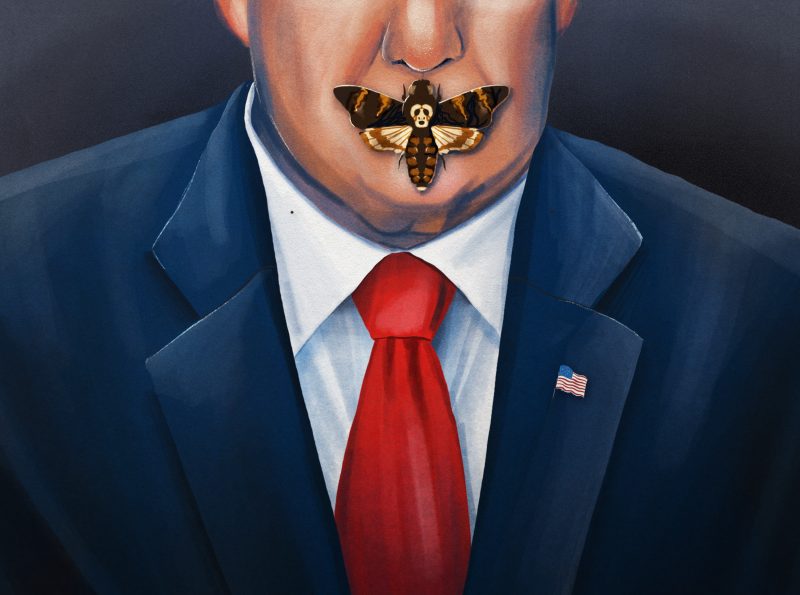In recent years, it has become increasingly evident that former US President Donald Trump has exhibited a peculiar fixation on the fictional serial killer Hannibal Lecter, as portrayed in the celebrated novel The Silence of the Lambs and its subsequent film adaptations. This unexpected fascination has raised many eyebrows and sparked speculation about the underlying motives driving Trump’s repeated references to a character known for his chilling intellect and manipulative behavior.
One possible explanation for Trump’s persistent mentions of Hannibal Lecter could be found in the parallels between the two figures. Both Trump and Lecter possess charismatic personas that have captivated audiences in their own right. While Trump’s appeal lies in his unapologetic brashness and populist rhetoric, Lecter’s allure stems from his enigmatic intellect and unnerving charm. By associating himself with a character as complex and intriguing as Lecter, Trump may be attempting to present himself as a cunning and strategic thinker, much like the infamous cannibalistic psychiatrist.
Furthermore, Trump’s references to Hannibal Lecter could serve as a form of psychological projection. In the realm of psychology, projection refers to the act of attributing one’s own undesirable traits or impulses to others. By repeatedly invoking a character as twisted and menacing as Lecter, Trump may be deflecting attention away from his own controversies and scandals, casting himself instead as a larger-than-life figure enmeshed in a high-stakes drama.
Another interpretation of Trump’s fixation on Hannibal Lecter could lie in the character’s symbolic significance. Lecter embodies a certain mystique and complexity that transcends traditional notions of heroism and villainy. By aligning himself with a figure as morally ambiguous as Lecter, Trump may be attempting to project an image of himself as a shrewd and enigmatic figure navigating a perilous political landscape.
However, it is important to note that any speculation surrounding Trump’s fascination with Hannibal Lecter remains just that – speculation. Without concrete evidence or statements directly addressing the matter, the true motivations behind Trump’s repeated references to a fictional serial killer may never be fully understood. Nevertheless, the curious parallels between the two figures and the psychological implications of such associations offer a fascinating lens through which to interpret the enigmatic behavior of one of America’s most polarizing political figures.
In conclusion, Trump’s ongoing references to Hannibal Lecter underscore the complexities of human psychology and the intricate ways in which individuals construct and project their identities. By drawing inspiration from a character as iconic and multifaceted as Lecter, Trump may be seeking to shape his own narrative and persona in a manner that is both compelling and enigmatic. Whether intentional or subconscious, Trump’s fixation on a fictional serial killer serves as a powerful reminder of the enduring influence of popular culture on our perceptions of reality and the characters who inhabit it.

